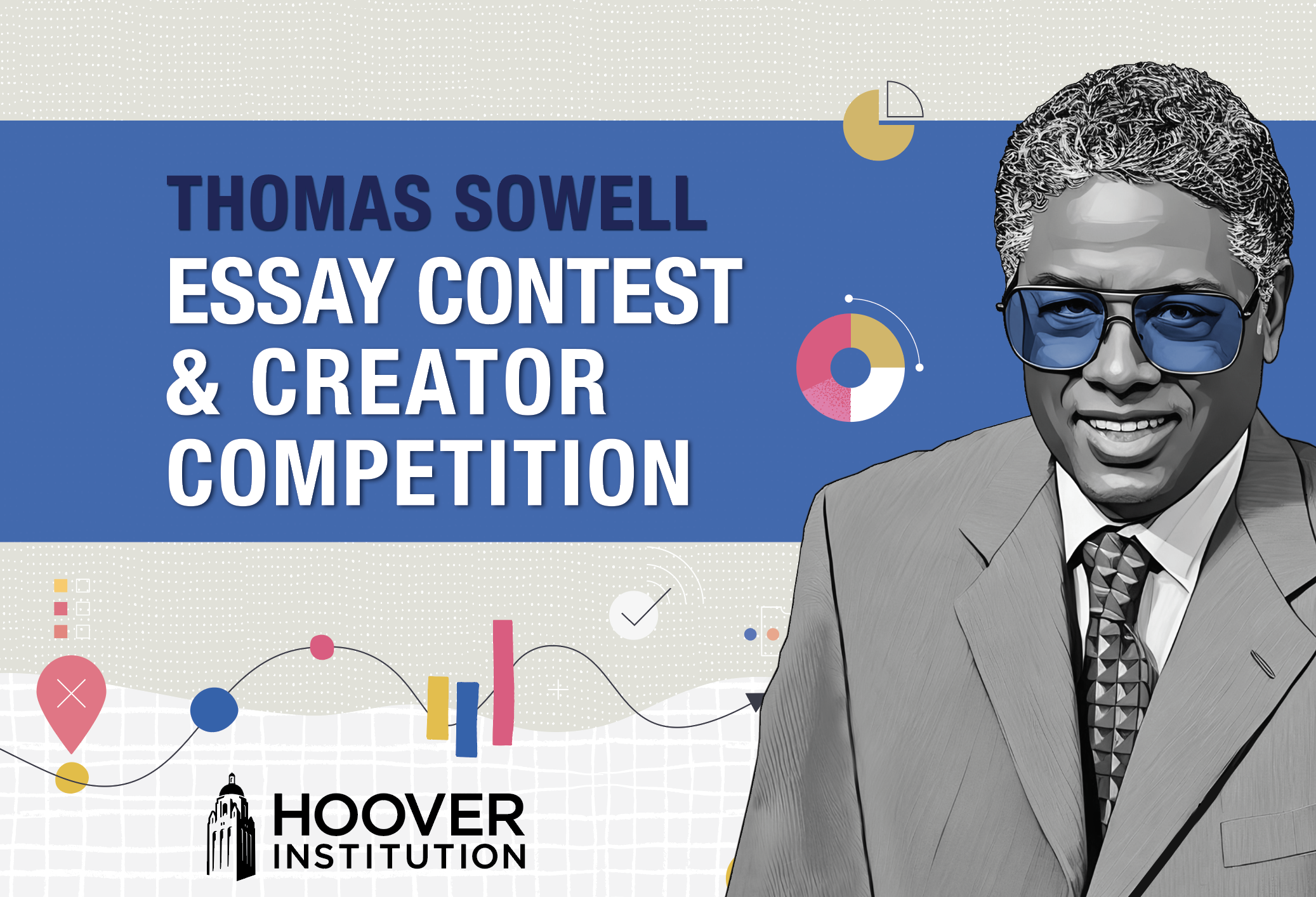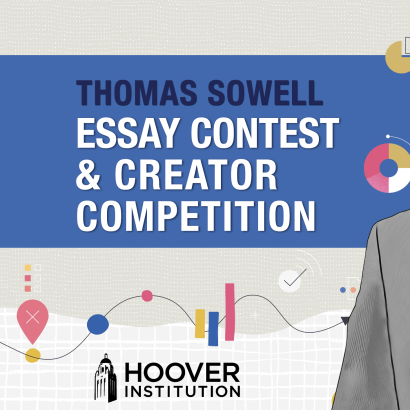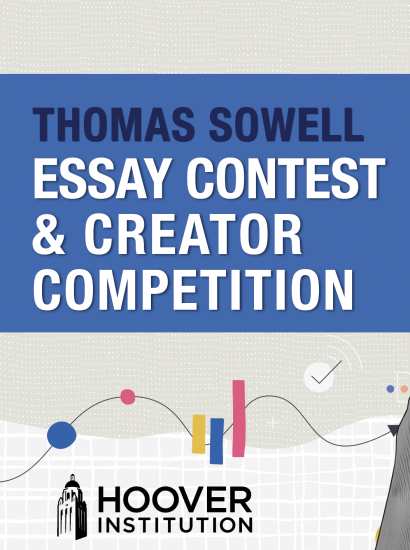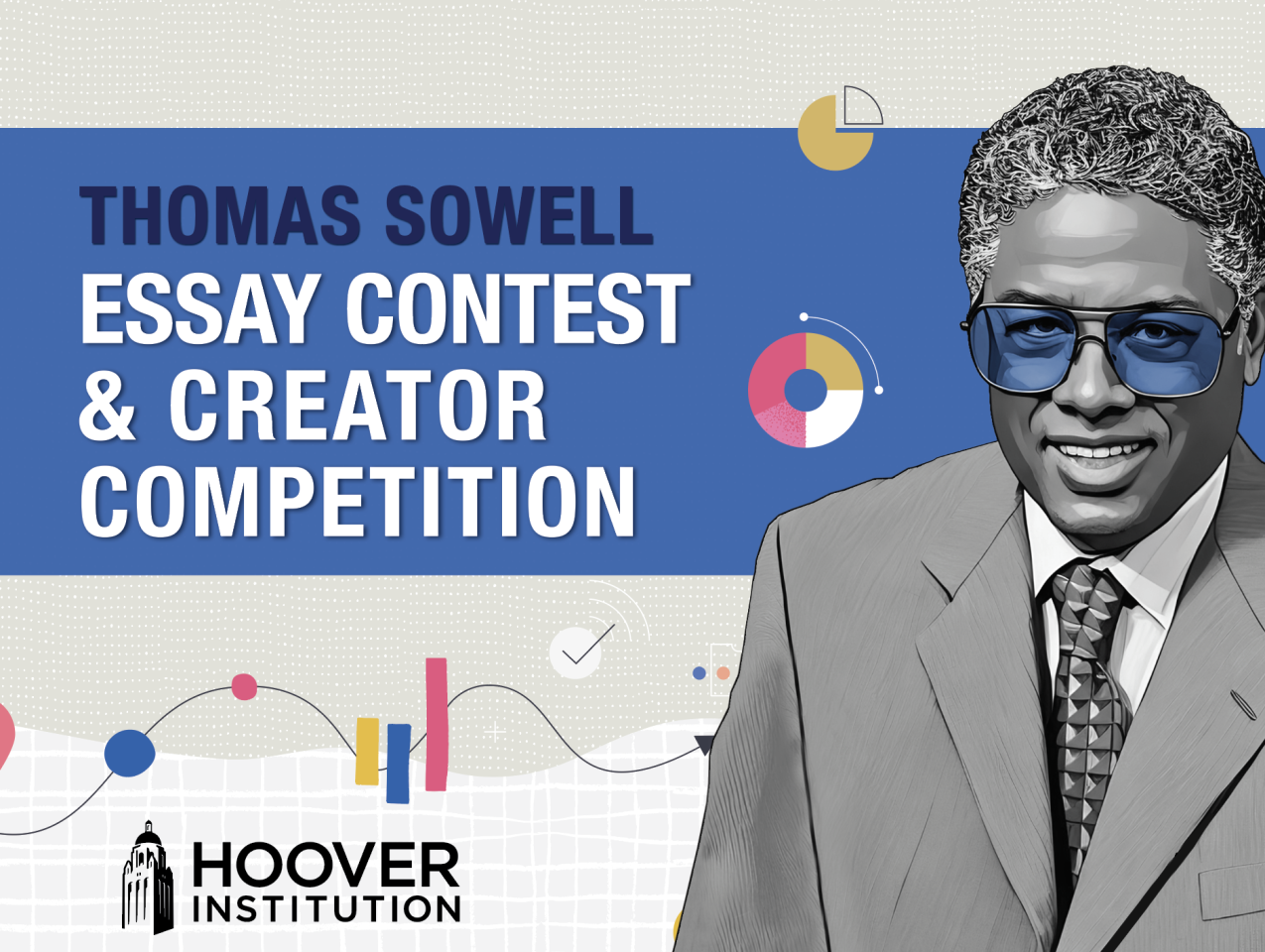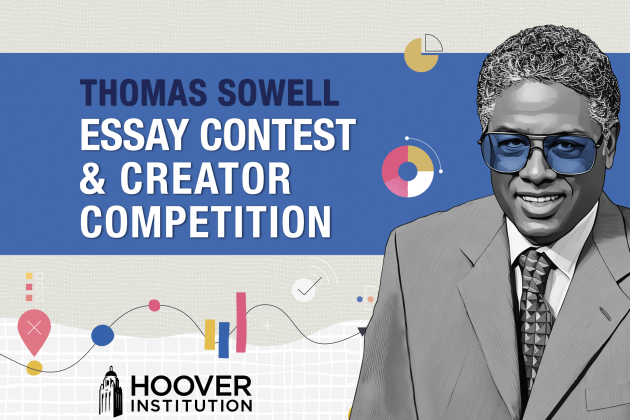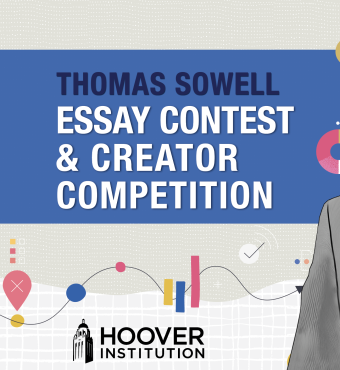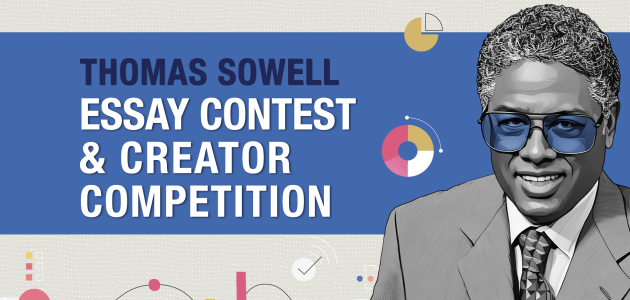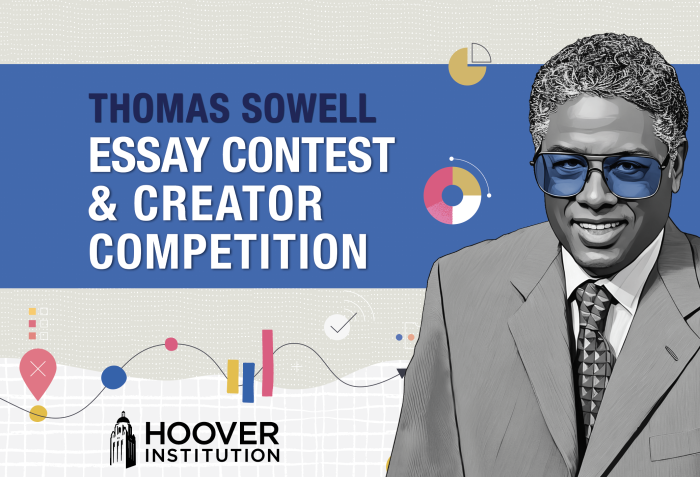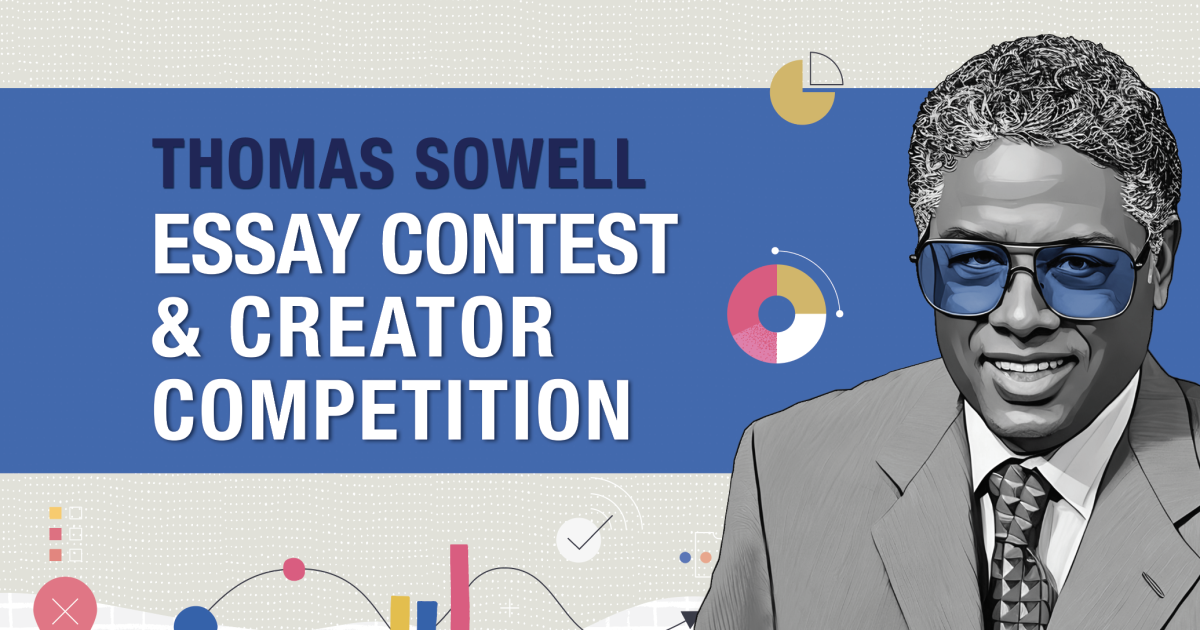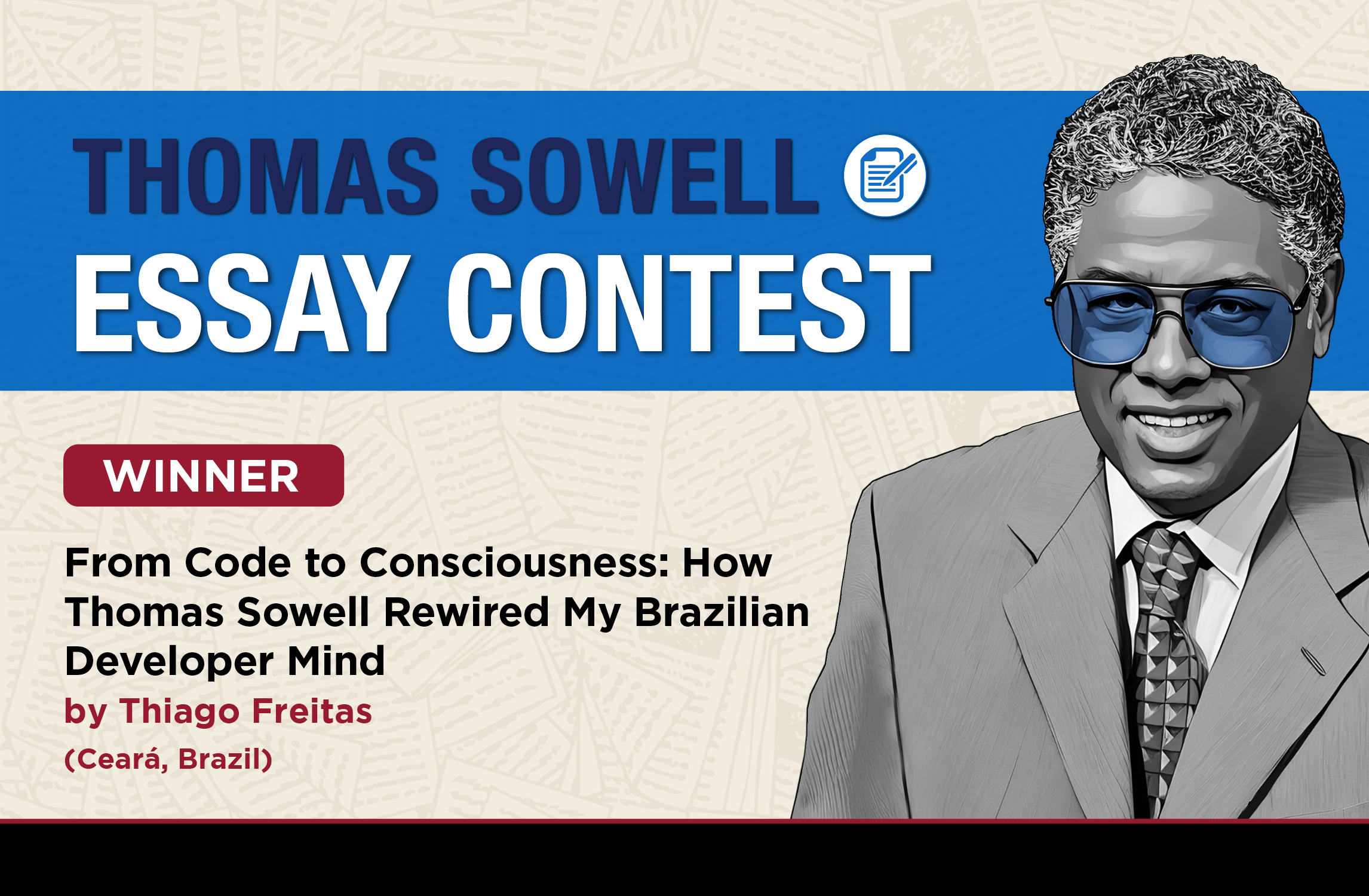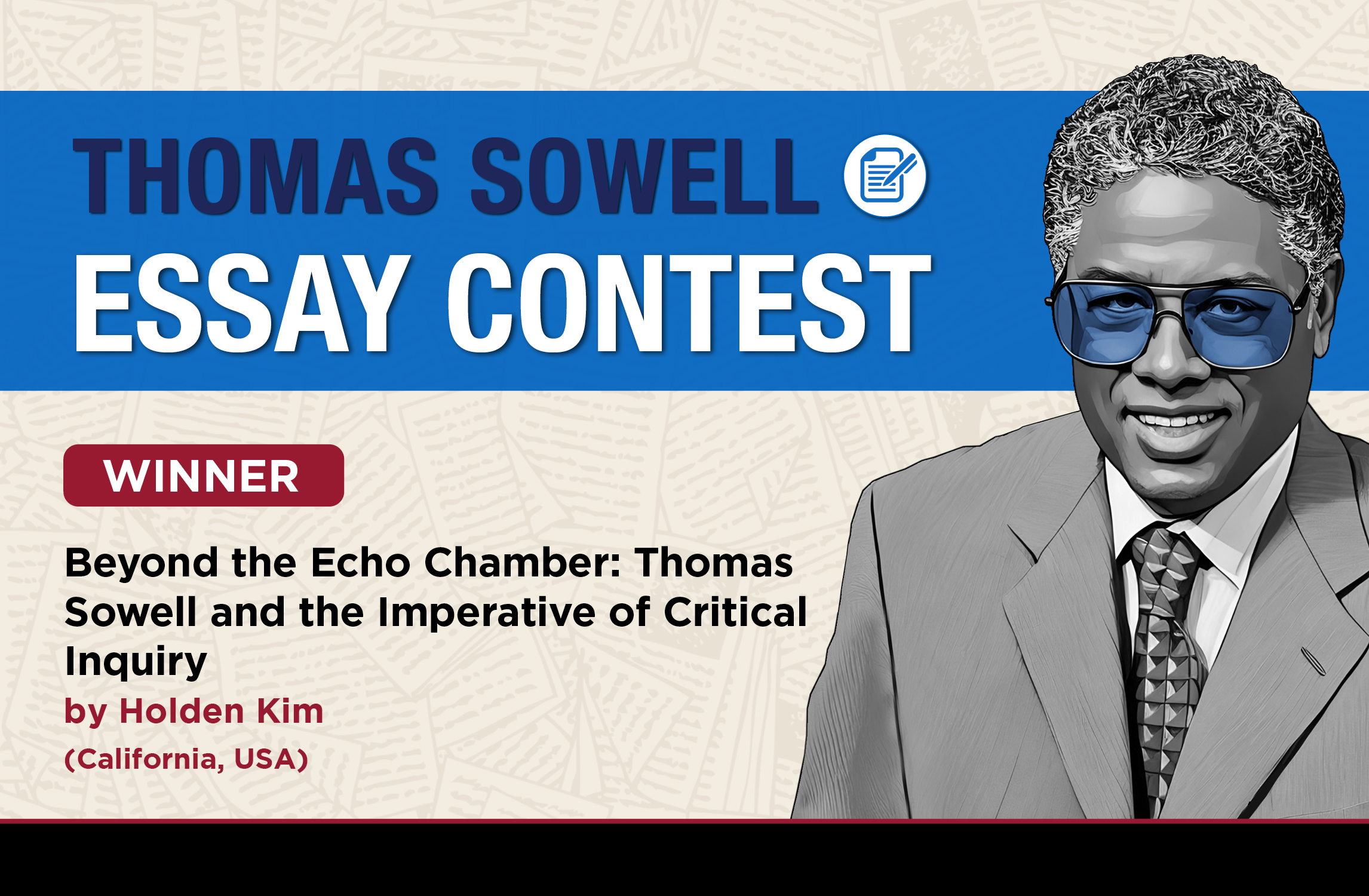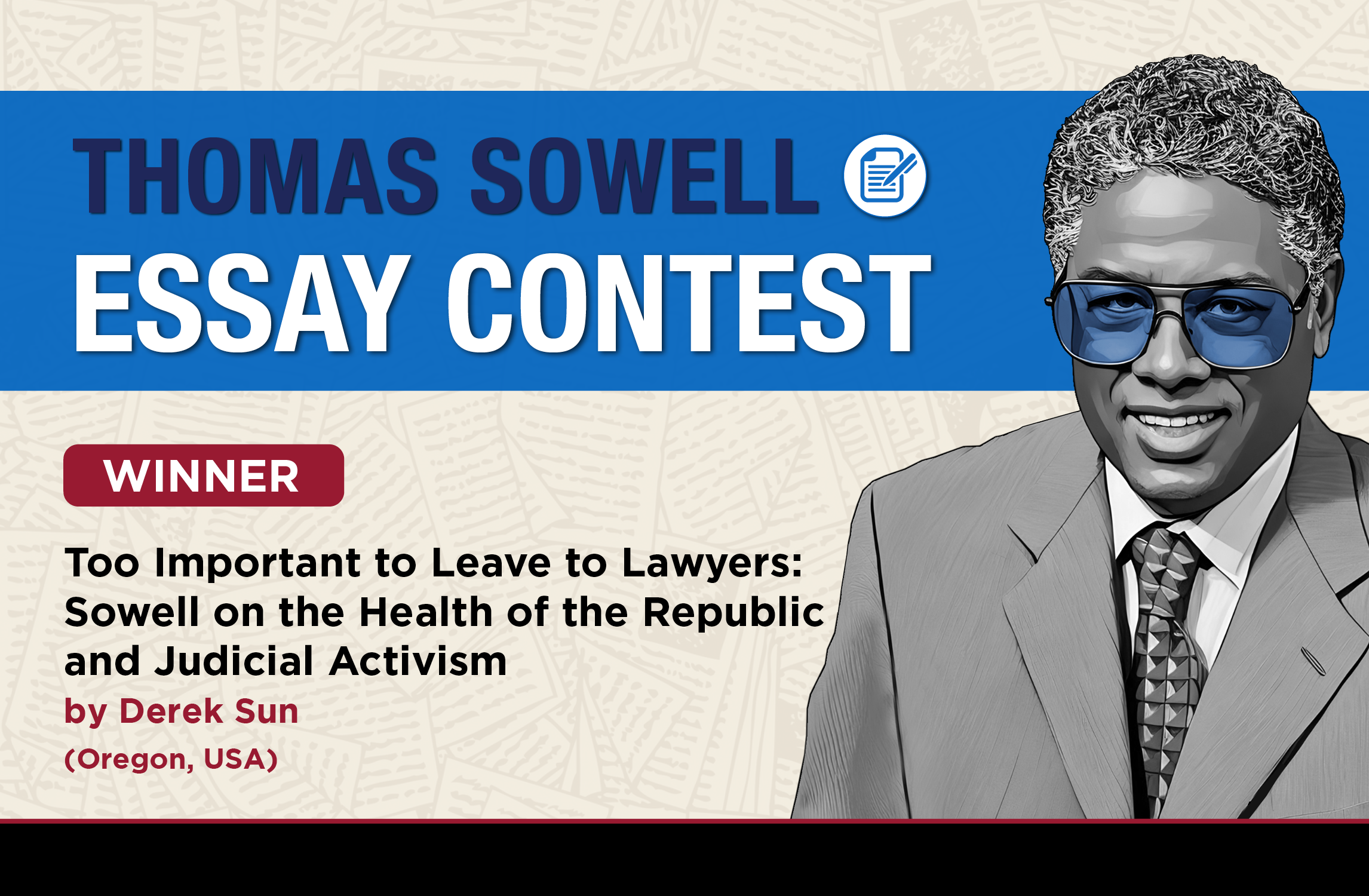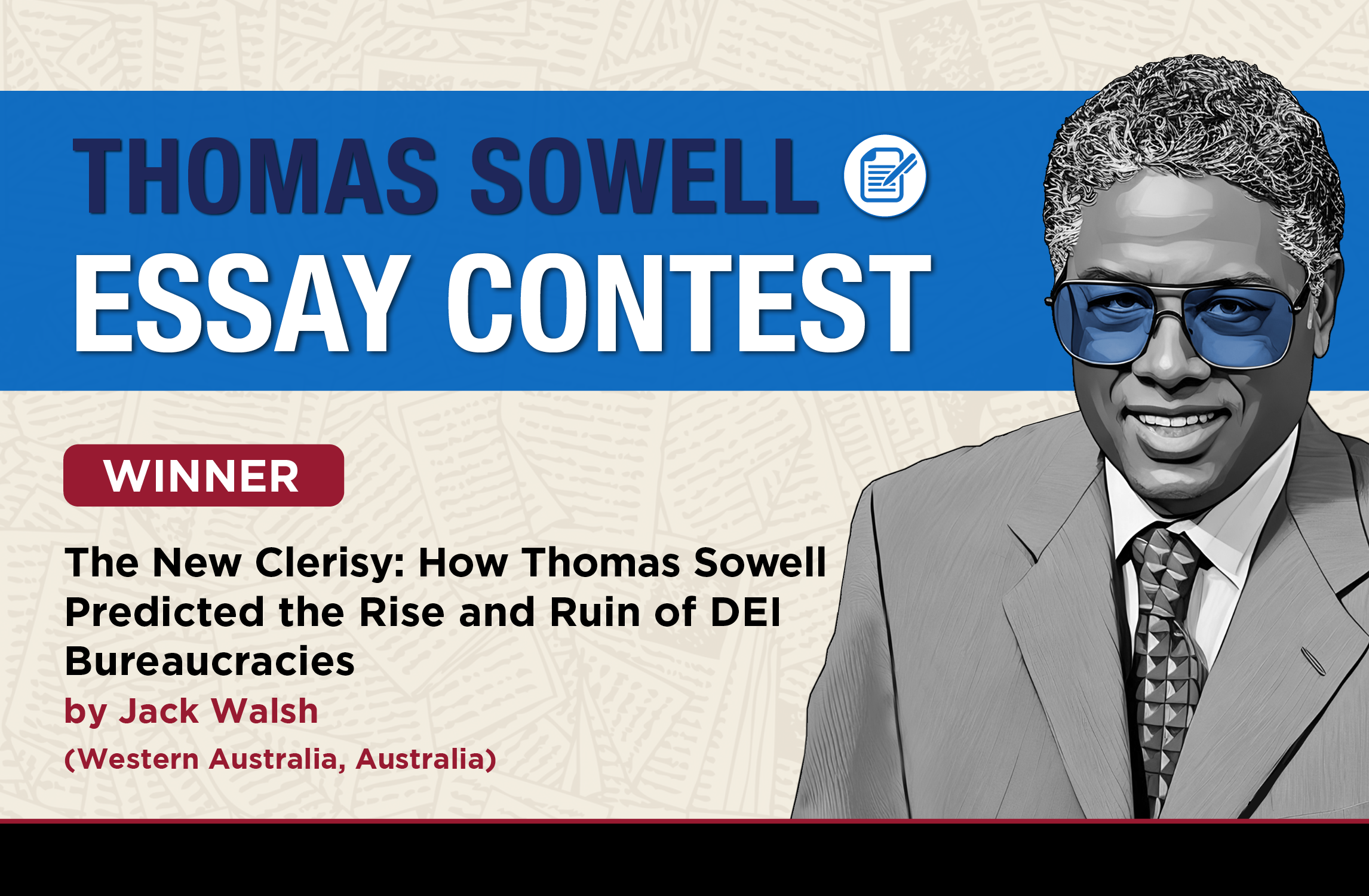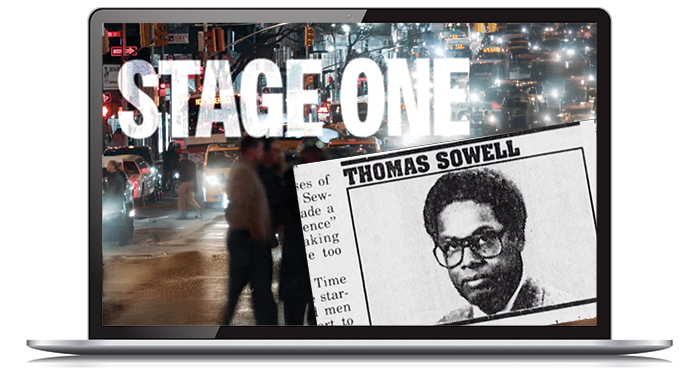
Hoover Institution (Stanford, CA) — The Hoover Institution is proud to announce five winners of an essay contest and creator competition that honors the extraordinary impact of Thomas Sowell, Rose and Milton Friedman Senior Fellow on Public Policy.
Through more than two hundred submissions across both award categories, students and recent graduates from 29 countries around the world explored how Sowell’s work has shaped policy analysis for generations of Americans and challenged conventional wisdom across a variety of topics.
Participants in the contest hail from every permanently inhabited continent on the globe, 32 of the 50 US states, and a range of educational backgrounds; from undergraduates to high school freshmen, alongside several participants who are homeschooled.
Meanwhile, participants to the essay contest contributed written pieces, each exploring an important cultural or public policy issue through the lens of Thomas Sowell’s work. They were asked to answer one of two questions: A) How have Thomas Sowell’s ideas changed your view of the world? or B) What is a current cultural or public policy issue that could be improved by a better public understanding or policy application of Thomas Sowell’s ideas?
“The sheer number of entrants in this contest, the quality of their work and the broad cross-section of nations represented demonstrate the compelling power and reach of Thomas Sowell’s collected works,” said Hoover Institution Research Director Steven J. Davis.
Participants in the creator competition submitted compelling videos that addressed this question: What lesson or teaching from Thomas Sowell do Americans most need to learn or remember today?
“What stood out was the impressive grasp these creators had of Sowell’s ideas and principles, and how creatively they translated them through storytelling and imagery to bring his arguments to life,” said Hoover Institution Chief Creative Officer Shana Farley.
Winning the high school category of the essay competition, answering question A, was Holden Kim of California, with a paper entitled “Beyond the Echo Chamber: Thomas Sowell and the Imperative of Critical Inquiry.”
Second place for this category went to Shohjahon Isroilov of Tashkent, Uzbekistan.
Winning the high school category for question B was Derek Sun of Oregon, with a paper entitled “Too Important to Leave to Lawyers: Sowell on the Health of the Republic and Judicial Activism.”
Second place answering this question went to Avi Nieves of Minnesota.
Winning the college category of the essay competition for question A was Thiago Freitas of Ceará, Brazil, with a paper entitled “From Code to Consciousness: How Thomas Sowell Rewired My Brazilian Developer Mind.”
Second place in the college category answering this question went to Maegan Smarkusky of Florida
Winning the college category answering question B was Jack Walsh of Western Australia, with his paper “The New Clerisy: How Thomas Sowell Predicted the Rise and Ruin of DEI Bureaucracies.”
The runners-up answering question B in the college category were Phuong Tran of Hanoi, Vietnam and Noah Peters of Maryland.
For the content creator competition, Sebastian Gutierrez of Ontario, Canada, won first prize, with a video entitled “Stage One.”
WATCH NOW

Runners up in this category were Ray Jones of Maryland and Fatimah Oriola of Cape Town, South Africa.
Some of the winners will attend the October 20 event honoring Sowell at the Hoover Institution.
Recognized globally for his contributions to economics, social theory, and public policy across six decades, Sowell continues to inspire and influence scholars and thinkers through his work. Now the author of nearly fifty books, Sowell has written on a variety of topics throughout his career, ranging from economics, history, social policy, and ethnicity to the history of ideas. He won the National Humanities Medal in 2002.
Some of his most famous books include Social Justice Fallacies (2023); Discrimination and Disparities (2018); Intellectuals and Society (2010); Basic Economics: A Common Sense Guide to the Economy (2000), now in its fifth edition; The Vision of the Anointed: Self-Congratulation as a Basis for Social Policy (1995); and A Conflict of Visions: Ideological Origins of Political Struggles (1987).
For more information, please contact Jeffrey Marschner, assistant director of media and government relations, at jmarsch@stanford.edu or 202-760-3200.
More information about the Thomas Sowell celebration can be found here.







